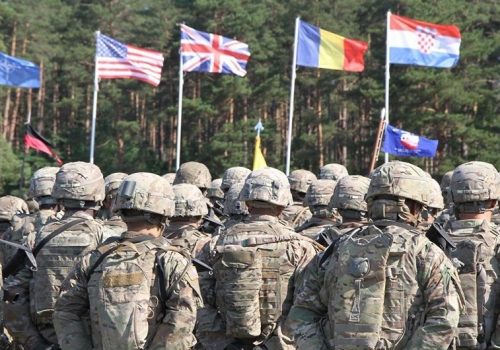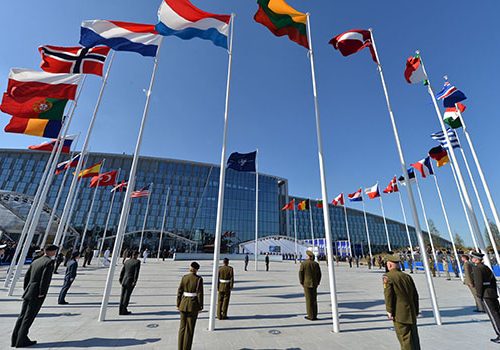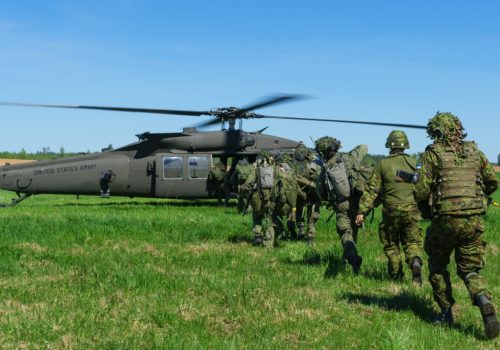Moving out: A comprehensive assessment of European military mobility
NATO has adapted and enhanced its footing for defense and deterrence in the face of Russian aggression in Europe, improving the capabilities and readiness of its forces. As the Alliance continues to rely on its ability to rapidly reinforce, the challenges of military mobility and the requirements needed to move tens of thousands of troops across Europe have drawn increased attention. To support the rapid movement of forces across the European continent and beyond, nations, NATO, and the European Union are individually and collectively working to mitigate the many legal, diplomatic, and infrastructure barriers to military mobility.
The Atlantic Council’s Task Force on military mobility was established in April 2019 to assess the adequacy of military mobility efforts in Europe to support the rapid reinforcement of allied forces across the continent. The Task Force was co-chaired by former supreme allied commander Europe and former commander of US European Command General Curtis Scaparrotti and former US Ambassador to Hungary Colleen Bell, and comprised former and current senior US and European defense officials and experts.
Comprising a year-long study, drawing on consultations with NATO, EU, and national government officials, this Task Force report outlines a set of concrete recommendations which together represent a critical next step to enhance a twenty-first-century conventional deterrence posture throughout Europe.
“Moving Out: A Comprehensive Assessment of European Military Mobility” thoroughly assesses current European military mobility efforts by nations, NATO, and the EU; identifies gaps in existing progress; and provides actionable recommendations to reinvigorate and improve mobility for the short and long term. This in-depth study, the first of its kind to address the full scope of European military mobility efforts and challenges, makes the case for greater action on military mobility across Europe and identifies areas the Task Force believes require greater attention.
The report was written by project director Wayne Schroeder, PhD, project rapporteur Clementine G. Starling, and Conor Rodihan in research support, in consultation with the Task Force’s members.
Subscribe for events and publications on NATO
Sign up for updates from the Atlantic Council’s Transatlantic Security Initiative, covering the debate on the greatest security challenges facing the North Atlantic Alliance and its key partners.
Related in-depth research & reports

The Transatlantic Security Initiative, in the Scowcroft Center for Strategy and Security, shapes and influences the debate on the greatest security challenges facing the North Atlantic Alliance and its key partners.


